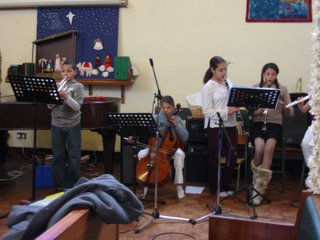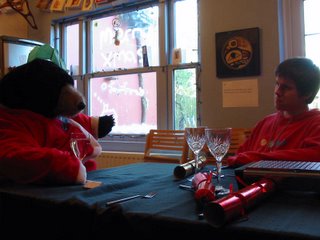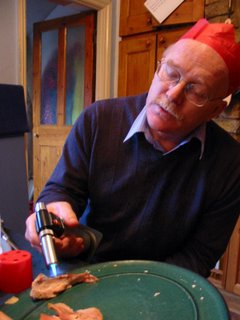...In their own words.I've been dipping into
The Early Christians In Their Own Words, a 'topically arranged collection of primary sources', edited by
Eberhard Arnold, the founder of the
Bruderhof community.
These texts, translated from Greek, Latin and Hebrew, range from letters and accounts to apologetics, poetry and confession, and offer a fascinating glimpse into the life of the 1st and 2nd century Christians.
The most striking texts I've read so far are those concerning the martyrs. The most revealing perhaps is a letter from
Gaius Pliny, the governor in Asia Minor, to the
Emperor Trajan, asking for advice on prosecuting Christians: "
I do not know what or how much to punish or to investigate." He asks whether Christians should be punished even if there is no crime, how he should determine guilt where names had been given by an informer, and whether he should acquit those who denied being a Christian and worshipped the statues of the gods. As regards the last, he points out: "
It is said that those who really are Christians cannot be compelled to do any of these things in any circumstances."
Gaius Pliny explains that Christians who continued to confess their faith, despite threat of the death penalty, were "
led away to their death, for I had no doubt that, whatever is was that they confessed, their stubborness and inflexible obstinacy certainly deserved to be punished."
He also reveals his concern about the large number of those 'imperiled': "
The contagion of this superstition has spread not only in the cities but even to the villages and to the country districts."
Trajan replies that Pliny has followed the correct procedure and explains that Christians "
should not be sought out", and should be pardoned on 'repentance'.
There is a further letter from the Emperor
Hadrian, again concerning the legal implications. His instruction is that accusations against Christians should go through the proper channels and proof should be given that "
the people concerned are acting against the law". He also speaks strongly against accusations brought with "
slanderous intention".
It's amazing to get such a clear picture, from the Roman authorities, of the life and health of the early church. The letters reveal the very real danger of life as an early Christian and yet the church is clearly growing and thriving, and with a reputation preceeding it - that the Christians would rather die than recount their faith.
Finally, Pliny also offers what is apparently the earliest external account of Christian worship, describing "
their custom to meet on a fixed day before sunlight and, alternating with each other, to sing a hymn to Christ as to a god.... After doing this it was their custom to part from one another and then to meet again to share an ordinary and harmless meal."
(If you're interested in reading the correspondance for yourself, the link at the top of the page takes you to the ebook version, in pdf format. )










